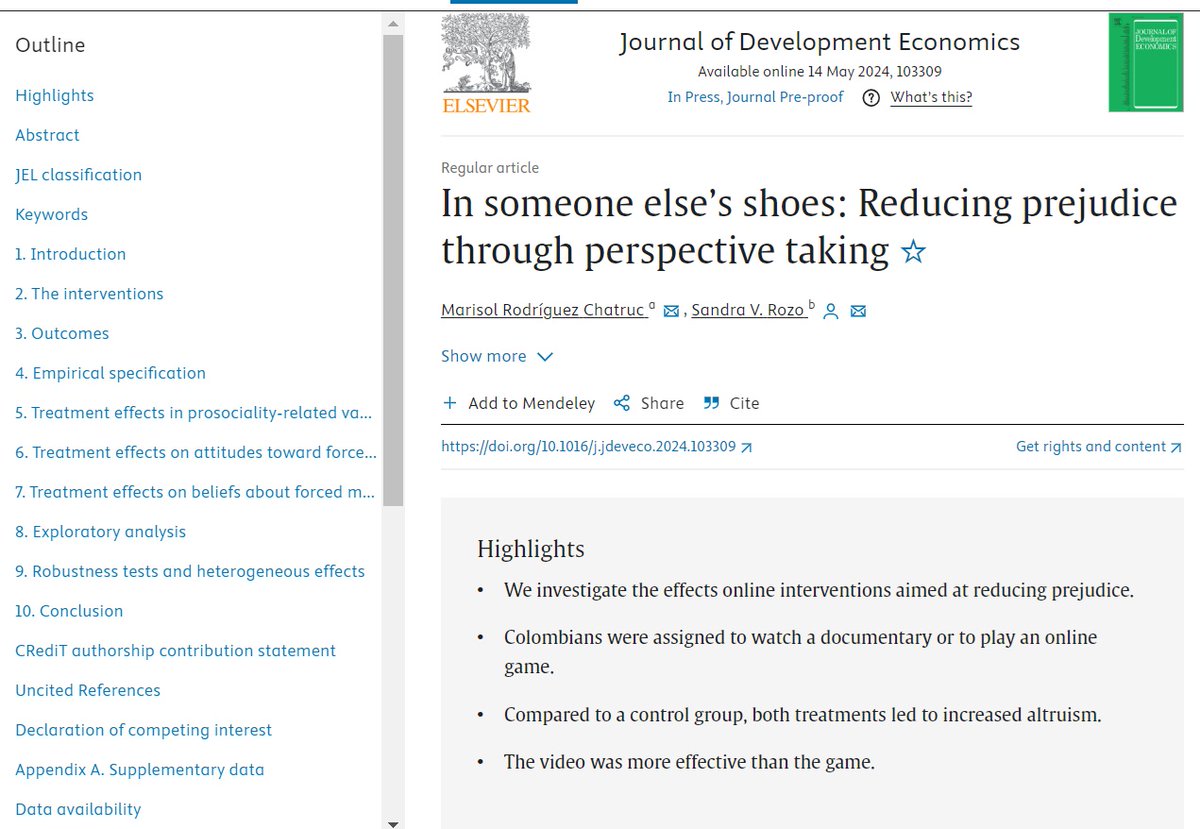
Damien de Walque
@damiendwa
Damien de Walque is a Lead Economist in the Development Research Group (Human Development and Public Services Team) at the World Bank.
ID: 339081286
https://sites.google.com/site/decrgdamiendewalque/ 20-07-2011 15:20:59
97 Tweet
221 Followers
59 Following



(5/5) (4) Our CCT treatment has no effect on a rapid math test, but the two other treatments do. This is likely due to a combination of differences in compliers and to some adverse learning effects of the parental incentives. Damien de Walque


We are deeply saddened by the passing of Markus Haacker, a brilliant and visionary economist whose economic analysis in support of HIV policy inspired us all. We will long remember Dr Haacker’s tenacity in pursuing the truth and challenging orthodoxy.



👏 Congrats to Oyebola Okunogbe for her well-deserved Best Paper Award from AEA Information on her piece “Technology, Taxation, and Corruption: Evidence from the Introduction of Electronic Tax Filing.” Learn more about Oyebola and her work at worldbank.org/en/about/peopl…



How can lower income countries collect more taxes? That’s a big question on the minds of many government officials and researchers. Gabe Tourek Gabriel Tourek and I offer some answers in our new paper just out in the Journal of Econ Perspectives @aeapubs aeaweb.org/articles?id=10… 1/n




On Tues May 7, my wonderful colleagues Anne Brockmeyer @annebrockmeyer.bsky.social @pierrebachas and I will share findings from our recent JEP papers on tax and development aeaweb.org/issues/752#10.… Discussion by Manuela Francisco (WB Global Director) Please join us in person or online!

My new blog post on how to collect data on social networks (with JUNI SINGH). World Bank Research blogs.worldbank.org/en/impactevalu…


Curious about the latest research on education from the World Bank Development Research Group (DECRG)? You can find out about it here: worldbank.org/en/research/br… World Bank Research


I had the distinct pleasure of chatting with Tim Phillips Talk Normal on VoxDev about a recent paper by Gabriel Tourek and I on how lower income countries can raise more tax revenues to fund public services. Hope you enjoy listening :)

Excited to share that starting in August, I'll be based in Brasília, continuing my role as researcher at the WB Research Group. Many thanks to the director, manager, & colleagues at World Bank Research for your support. Look forward to engaging with the brilliant research community in🇧🇷

My friend Varun Gauri - has just published his debut novel. I had the privilege of reading the manuscript. It is beautifully written and crafted; a delightful, sensitive, and funny exploration of Indian American life that explores the inner workings and non-workings of a

Obesity is a major risk factor for a range of diseases. Worldwide, its prevalence has been growing, becoming a leading cause of morbidity and mortality in countries of all income levels. Join Damien de Walque for insights on global health equity wrld.bg/btsX50TMF9S





